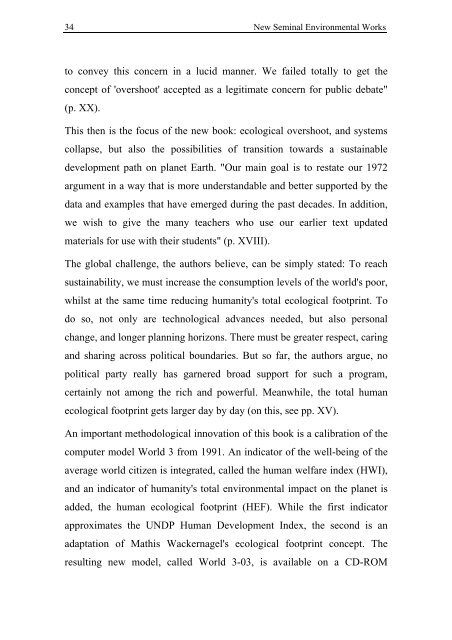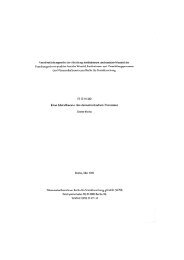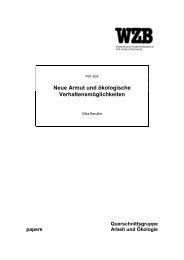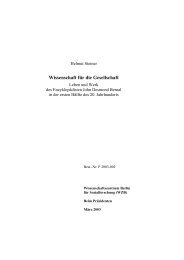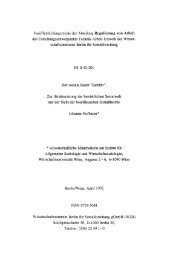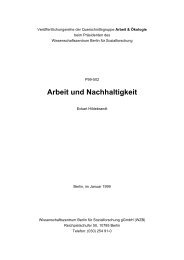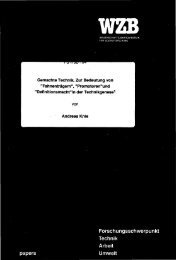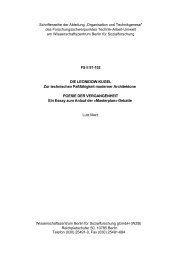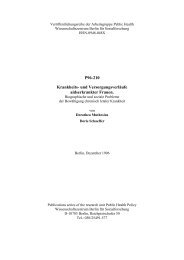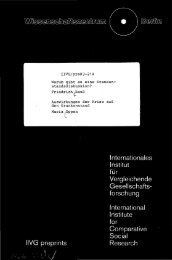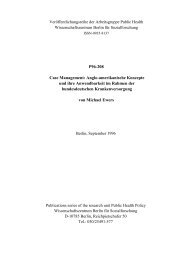New seminal environmental works. Nine review articles. - WZB
New seminal environmental works. Nine review articles. - WZB
New seminal environmental works. Nine review articles. - WZB
Create successful ePaper yourself
Turn your PDF publications into a flip-book with our unique Google optimized e-Paper software.
34 <strong>New</strong> Seminal Environmental Works<br />
to convey this concern in a lucid manner. We failed totally to get the<br />
concept of 'overshoot' accepted as a legitimate concern for public debate"<br />
(p. XX).<br />
This then is the focus of the new book: ecological overshoot, and systems<br />
collapse, but also the possibilities of transition towards a sustainable<br />
development path on planet Earth. "Our main goal is to restate our 1972<br />
argument in a way that is more understandable and better supported by the<br />
data and examples that have emerged during the past decades. In addition,<br />
we wish to give the many teachers who use our earlier text updated<br />
materials for use with their students" (p. XVIII).<br />
The global challenge, the authors believe, can be simply stated: To reach<br />
sustainability, we must increase the consumption levels of the world's poor,<br />
whilst at the same time reducing humanity's total ecological footprint. To<br />
do so, not only are technological advances needed, but also personal<br />
change, and longer planning horizons. There must be greater respect, caring<br />
and sharing across political boundaries. But so far, the authors argue, no<br />
political party really has garnered broad support for such a program,<br />
certainly not among the rich and powerful. Meanwhile, the total human<br />
ecological footprint gets larger day by day (on this, see pp. XV).<br />
An important methodological innovation of this book is a calibration of the<br />
computer model World 3 from 1991. An indicator of the well-being of the<br />
average world citizen is integrated, called the human welfare index (HWI),<br />
and an indicator of humanity's total <strong>environmental</strong> impact on the planet is<br />
added, the human ecological footprint (HEF). While the first indicator<br />
approximates the UNDP Human Development Index, the second is an<br />
adaptation of Mathis Wackernagel's ecological footprint concept. The<br />
resulting new model, called World 3-03, is available on a CD-ROM


